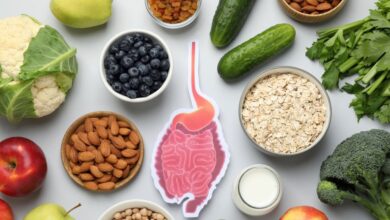Do Detox Diets Have an Effect?

Detox, short for detoxification, refers to the body’s natural or medically assisted process of eliminating or neutralizing toxins. The human body has its detoxification mechanisms, primarily involving the liver, kidneys, and other organs. Detox can also be used more broadly to describe lifestyle changes, diets, or interventions aimed at removing toxins or promoting overall health.
Detoxification therapies are often recommended due to potential exposure to toxic chemicals in the environment or diet. These may include pollutants, synthetic chemicals, heavy metals, and other harmful compounds.
However, there are several chemicals that may not be easily eliminated through these processes, including persistent organic pollutants (POPs), phthalates, bisphenol A (BPA), and heavy metals. They tend to accumulate in fatty tissue or blood, and it may take a long time – even years – for the body to cleanse itself.
Detox diets usually involve removing certain foods or food groups from the diet for a specific period. The goal is to eliminate toxins and improve overall health. Common elements may include fruits, vegetables, water, and herbal teas.
It is also claimed that these diets help with various health issues, including obesity, digestive problems, autoimmune diseases, inflammation, allergies, bloating, and chronic fatigue.
There are many ways to conduct a detox diet, ranging from complete fasting to simpler modifications of food. Most detox diets include at least one of the following:
1. Fasting for 1-3 days.
2. Consuming fresh fruit and vegetable juices, smoothies, water, and tea.
3. Drinking only specific liquids, such as saltwater or lemon juice.
4. Eliminating foods high in heavy metals, pollutants, and allergens.
5. Taking supplements or herbs.
6. Avoiding all allergenic foods, followed by their slow reintroduction.
7. Using laxatives, colon cleansing, or enemas.
8. Regular exercise.
9. Completely eliminating alcohol, coffee, cigarettes, and refined sugar.
Some report feeling more focused and energetic during and after detox diets. However, this improved well-being may simply be due to the removal of processed foods, alcohol, and other unhealthy substances from the diet. It may also result from gaining vitamins and minerals that were lacking before the diet. Nevertheless, many report feeling quite unwell during the detoxification period.
While some may lose a significant amount of weight quickly, this effect appears to be due to fluid loss and carbohydrate stores rather than fat loss. This weight is usually regained rapidly once the detox is stopped.
A study on Korean women with overweight examined a lemon detox diet, which involved restricting the diet to a mixture of organic maple or palm syrup and lemon juice for seven days. This diet significantly reduced body weight, body fat percentage, waist-to-hip ratio, waist circumference, inflammation, insulin resistance, and circulating leptin levels.
If a detox diet involves significant calorie restriction, it will undoubtedly lead to weight loss and improvement in metabolic health – but it is unlikely to help maintain weight in the long term.


